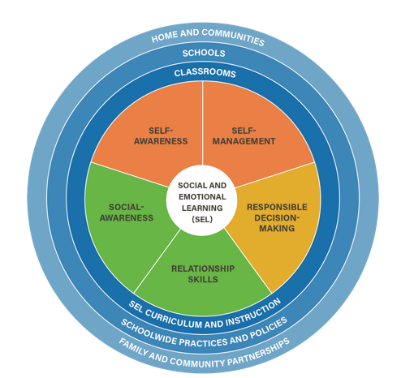Firstly, what is social-emotional learning? Social-emotional learning (SEL) is a gradual process for children to develop life skills, including problem-solving skills, self-control ability, and interpersonal skills. The Collaborative for Academic, Social, and Emotional Learning (CASEL) identifies five core competencies of SEL, which are self-awareness, self-management, social awareness, relationship skills, and responsible decision-making. These competencies not only affect students and classroom environment, but also have an impact on schools, homes and communities.

According to the 2018 Social and Emotional Learning Report, 96 percent of administrators, 93 percent of teachers and 81 percent parents deem that SEL is an essential teaching method in the education industry. Why so many educators believe SEL is crucial for students?
3 Benefits of Social-Emotional Learning
1. Improve classroom behavior
The study conducted by Rocky View Schools demonstrates that the students in a well-implemented social-emotional learning environment are less likely to generate issues, take risks, and produce anxiety. The students tend to be more actively engage in classroom activities, and have more interests and motivation in learning new things.
2. Improve academic performance
The social-emotional learning focuses on enhancing students to think and tackle problems in different aspects. Moreover, under social-emotional learning environment, teachers tend to create a warm and supportive teaching environment for students. Thus, the students are more likely to achieve high performance.
3. Increase communication skills
Incorporating cooperative learning methods not only increase students' academic scores, but also enhance the students' ability of cooperation and teamwork. In order to conduct projects and complete reports, it requires students to work collaboratively with groups and partners. Thus, the student may work with people who are not familiar with or even have never seen before. Through the project, it will assist the student to develop social skills.
To conclude, social-emotional learning has positive effects on the education industry, especially for students. In the short term, students can achieve a great success in school and daily life, while in the long run, with a good social and emotional competence, it raises the high likelihood for the student to enter a good university and get a decent job.

